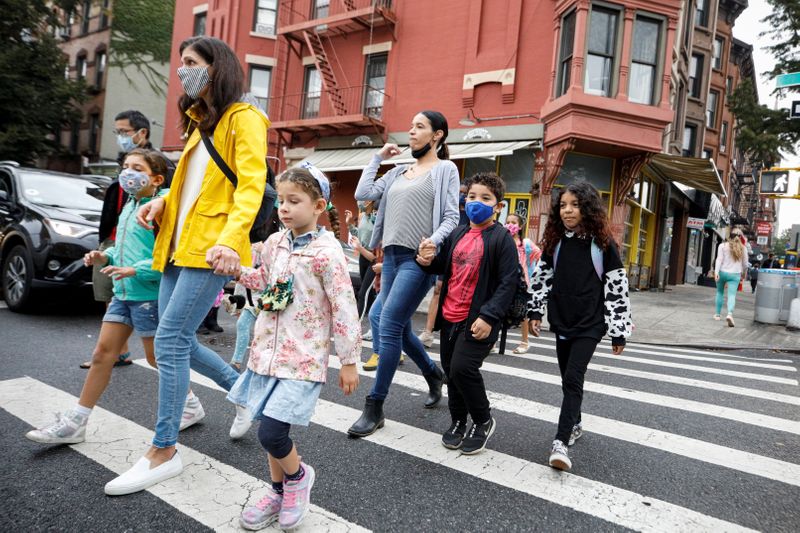By Nancy Lapid
(Reuters) - The following is a summary of some recent studies on COVID-19. They include research that warrants further study to corroborate the findings and that have yet to be certified by peer review.
Children with mild COVID-19 may lack antibodies afterward
Children who contract a mild case of COVID-19 may not develop antibodies to the virus afterward, a study from Australia suggests. Researchers compared 57 children and 51 adults with mild COVID-19 or asymptomatic infections. Only 37% of children appeared to develop antibodies, compared to 76% of adults – even though viral loads were similar in the two groups, researchers found. Children's bodies also did not appear to produce second-line cellular immune responses to the virus in the same way as adults, said study leader Paul Licciardi of Murdoch Children's Research Institute in Melbourne. The participants in the study were all infected in 2020, his team reported on Monday on medRxiv ahead of peer review. "Whether this also happens for the current circulating variant (Delta) requires further investigation, as well as studies to understand why children are less likely to produce antibody responses following SARS-CoV-2 infection," Licciardi said. "Whether this means children are susceptible to re-infection is not known."
Experimental oral COVID-19 vaccine shows promise in monkeys
A COVID-19 booster vaccine that can be given by mouth to people who already have antibodies from vaccination or prior infection has yielded promising results in monkeys and is likely to be tested soon in humans, according to the company developing it. The oral booster uses traditional vaccine technology in which a harmless carrier virus delivers coronavirus proteins into cells on the surface of the tongue, or lining of the cheeks and throat, stimulating production of antibodies that can block the virus before it gets a foothold in the body, said Dr. Stephen Russell, chief executive of Vyriad in Rochester, Minnesota, who led the study. "Not only would an oral COVID-19 vaccine be more convenient and acceptable... but it might also lead to better immunity because it is being administered to the site where the COVID-19 virus typically comes into the body," he added. In monkeys at one week after vaccinations, antibody levels increased by nearly 100-fold, with no side effects, Russell said. A report of the study posted on Monday on bioRxiv ahead of peer review says Vyriad is working with the U.S. Food and Drug Administration to plan human trials.
Plants may be useful in vaccine production
Plants could someday be used to produce COVID-19 vaccines, according to researchers who are developing a nasal spray vaccine. Vaccines work by delivering antigens, which are replicas of pieces of virus or bacteria that train the immune system to recognize the invader and defend against it. Vaccine antigens are typically produced in cells from mammals, but previous studies have suggested that producing them in tobacco-related Nicotiana benthamiana plants would be less expensive and safer. In the current lab study, posted on Monday on bioRxiv ahead of peer review, COVID-19 survivors' antibodies recognized and responded to the coronavirus antigen produced in the plants "in the same way that they recognize a standard antigen produced in mammalian cells," said study leader Allyson MacLean of the University of Ottawa. The intra-nasal vaccine is not meant to replace conventional (injected) vaccines, but rather to add another layer of protection by stimulating immune system protection in the airways, where the virus first attaches itself," MacLean said. "We imagine the nasal-spray being used to top-up immune protection when traveling or going to events with large numbers of people."
Click for a Reuters graphic https://tmsnrt.rs/3c7R3Bl on vaccines in development.
